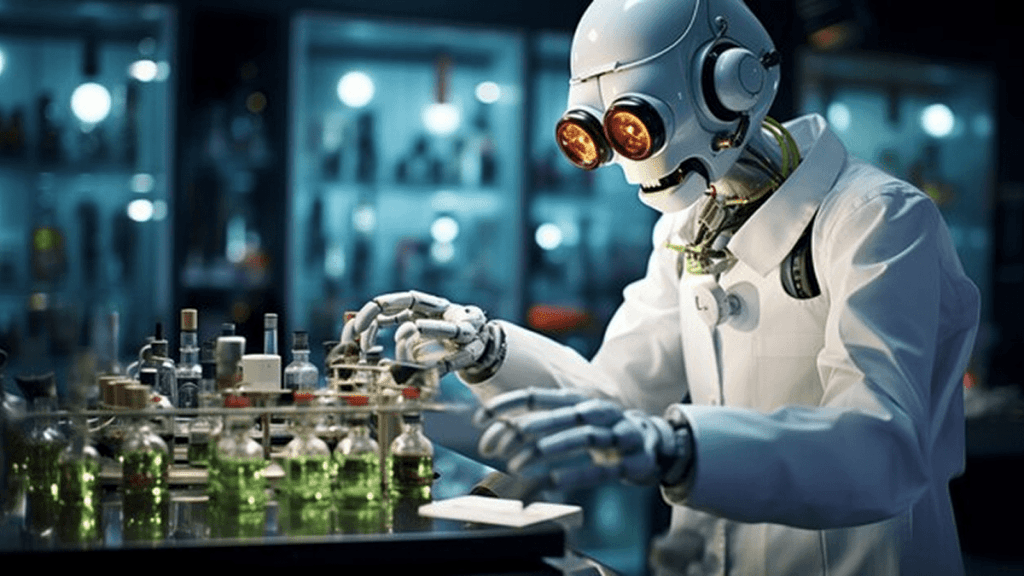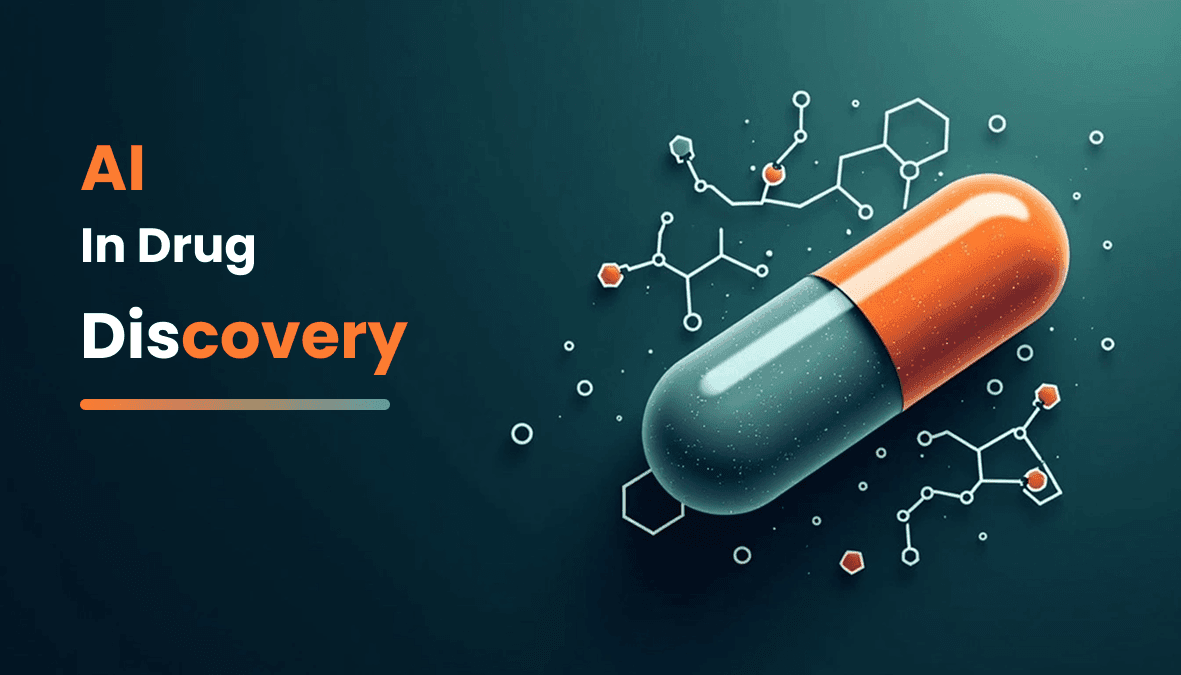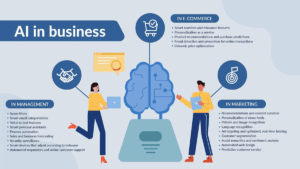AI in drug discovery signifies ground-breaking advancements in the pharmaceutical sector is hardly surprising . Amplifying the discovery of novel therapeutic targets, unveiling the science of drug development, making the process quicker, more accurate, economical and highly efficient. By utilizing machine learning and deep learning algorithms, AI is reshaping traditional drug discovery methods and modifying disease treatment with cutting edge solutions.
The Role of AI in Drug Discovery
Traditional drug discovery is a costly and time intensive procedure often requiring decades and billions of dollars. However, AI in drug discovery facilitates rapid advancement in medicine. This is achieved by analyzing vast amounts of biological and chemical data, which fuels innovation in the drug discovery process. AI-powered models foresee potential drug candidates, optimize atomic structures, and indeed mimic clinical trials, diminishing the dependence on conventional trial-and-error strategies.
One of the key benefits of AI in drug discovery is its capacity to analyze complex patterns of genetic information. AI analytics can screen millions of compounds; identify molecular structures, gene protein interactions, to recognize those with the most elevated potential for success, essentially shortening inquiry timelines. This innovation is being utilized in repurposing existing drugs for modern restorative applications, encouraging expanding effectiveness.

AI Technologies Driving Drug Discovery
Several AI technologies are at the forefront of AI in drug discovery:
Machine Learning (ML): ML calculations prepare huge datasets to predict drug candidates, foresee drug association and optimize molecular properties.
Deep Learning: Neural systems offer assistance analyzing atomic structures, get protein-drug intuitive, and create unused sedate plans.
Natural Language Processing (NLP): NLP scans scientific literature and clinical trial data to extract valuable insights for drug development.
Generative AI: AI models like GANs (Generative Adversarial Networks) create new molecular structures that fit specific biological targets.
Real-World Applications of AI in Drug Discovery
Different pharmaceutical companies and research institutions worldwide are utilizing AI in drug discovery to bring life saving solutions to the market. Leading Pharmaceutical companies like Pfizer, Novartis, and Merck team up with AI-driven startups to boost drug development processes. The application of AI in medical research has already played a key role in potential therapies for diseases such as cancer, Alzheimer’s, and COVID-19.
For instance, In Silico Medication created an AI-generated drug candidate for fibrosis in just 46 days, a process that normally takes a long time. Additionally, DeepMind’s AlphaFold has revolutionized protein structure predictions, a crucial factor in drug development. The ability of AI to predict atomic structures with high precision has significantly accelerated the process of identifying drug leads with potential for clinical development.

Challenges and Future Prospect
In spite of its benefits, AI in drug discovery faces challenges such as data quality, administrative endorsements, and moral concerns. Guaranteeing the exactness and unwavering quality of AI forecasts remains vital. Moreover, coordination AI-driven experiences with conventional research facility tests is basic for successful drug development and fruitful medicate advancement. Administrative organizations, counting the FDA, are working on systems to streamline AI integration into pharmaceutical investigation whilst keeping up safety and adequacy standards.
The future of AI in drug discovery looks promising, with headways in quantum computing, personalized medication, and AI-driven clinical trials. AI is too anticipated treatment plans based on individuals genetic information. As AI innovations advance, they will proceed to upgrade effectiveness, diminish costs, and quicken the improvement of life-saving medications, making pharmaceutical queries more optimized for greater precision and success.
AI in drug discovery is bridging the crevice between machine insights and medication, offering a transformative approach to pharmaceutical investigation. By leveraging AI-powered techniques researchers can introduce new drug candidates, optimize drug formulation, and move forward treatment results at a phenomenal pace. As AI proceeds to advance, its part in drug development will as it were extended, revolutionizing medication and bringing hope to millions around the world. The quick progressions in AI will clear the way for groundbreaking medications, making medicate advancement quicker, more productive, and open on a worldwide scale.




